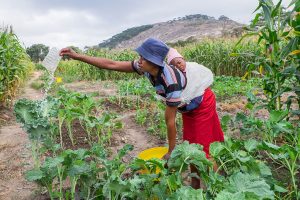CRIDF’s aims and approaches
What are CRIDF’s aims?

The Climate Resilient Infrastructure Development Facility (CRIDF) is a FCDO (Foreign, Commonwealth & Development Office) supported programme working to provide long-term solutions to water issues that affect poor communities in Southern Africa. Our focus is not on building short-term water infrastructure, but on working with organisations to show them how they can better build and manage their own water infrastructure to improve people’s lives.
Because rivers, lakes and river basins cross borders, CRIDF is working with 12 different countries in Southern Africa that share water resources. In so doing, CRIDF aims to improve the lives of over 200 million people, many of them extremely poor.
What is CRIDF’s approach?
To achieve its goals, CRIDF is using an ‘infrastructure development facility’ model – an approach which works to bring together financial resources for projects in the region, and to advise partners of the best way to select, manage and implement their projects.
An important part of this approach involves the Facility working with local partners to together put infrastructure in place. Working together allows the CRIDF team to demonstrate best-practice techniques and ways of working to local engineers. Basically, we believe that physically working hands-on together with people while showing them how to employ climate-resilient techniques is the best way to bring about successful long-term management of water infrastructure.
This approach has been used successfully in other areas of international development – for example on agricultural projects where new farming techniques are demonstrated to farmers in order to build trust and understanding. The basic thinking is the same: partners’ rates of adoption will be much higher if they see an approach or technology successfully used by others. The ultimate aim is to embed these best-practice approaches so firmly in the ways that people and organisations work that they spread and become the standard.
CRIDF therefore focuses strongly on sharing technical expertise with local engineers on small-scale projects. The skills that the engineers learn include climate-resilient techniques, as well as approaches that benefit marginalised groups. These skills are then transferred to many other projects and engineers across the region. This ensures that the future of infrastructure planning and operation will be secure, even once CRIDF ends.

